Hey gang! This week we’re reading the first half of chapter four, starting from page 102 and ending on page 128 of the Vintage Classics paperback edition, up to the line “We’ve been bears here for long enough.”
On a side note, I’m sending a big mushy hug to my US readers: we are all brothers and sisters, and we are in this together.
Profitable altruism
In the first half of the chapter we switch perspective and follow, for a change, the younger characters in our cast; but before leaving them the stage we check on Fabrizio: he’s spending more and more time with mayor Sedàra, now almost part of the family, and to his surprise has began to even like him. Opposites attract, as people say.
Business savvy Sedàra is coaching naive, good-natured Fabrizio to put profit before everything, earning the Prince the reputation of being greedy while also decisively not solving his financial problems. Meanwhile, Sedàra’s proximity to what he consider useless, effete aristocrats has the hilarious effect of making him appreciate good manners. Not, mind you, because washing up or saying ‘please’ and ‘thank you’ would make him a better person, but because it makes it easier to lower someone’s guard and empty their pockets: playing nice is a trick that modern corporations know only too well.
“This abstract energy made a deep impression on Don Calogero, although with a direct impact not filtered through words as has been attempted here; much of this fascination, he noticed, simply came from good manners, and he realised how agreeable can be a well-bred man, for at heart he is only someone who eliminates the unpleasant aspects of so much of the human condition and exercises a kind of profitable altruism (a formula in which the usefulness of the adjective made him tolerate the uselessness of the noun).”
It’s interesting to switch point of view and learn that while Fabrizio sees himself as a big predator, Sedàra sees Fabrizio as a sheep ready to be sheared. Little does he know that by killing out an entire class, the aristocracy, he and people like him are creating a vacuum that their own children and grandchildren will one day fill. Fourth-generation Sedàras are walking around today with their yachts and horses and Rolexes, as snob and self-important as the Fabrizios of old.
Formosissima et nigerrima
Angelica is reintroduced at the Salina palace as bride-to-be and triumphantly appears wearing grapes and corn on her hat, a calculated reminder of all the wealth she’s bringing in with her dowry. She’s Demeter, the goddess of harvest, she’s a hot, rich commodity. I’m gonna say right away that I don’t care much for the language Lampedusa uses to talk about women and sex, especially when it comes to younger girls (every time I read words like adolescent or virginal I swear I lose a year of my life). While I absolutely believe he’s making valid points about human greed and lust, a female writer —or a less cynical one— would have expressed those same points with different language.
Angelica’s introduction to the family’s inner sanctum is described as a sort of Masonic initiation, a solemn ancient ritual that is also complete hogwash. Everyone is happy, only Concetta and Bendicò, the two characters that most symbolize the aristocratic spirit and history of the Leopard, remind us with tears and anger that this union, indeed born of greed and lust, is killing their way of life. Yes, there’s something somber underneath the occasion. Even the flames in the fireplace tremble contained and uncertain, anticipating that this young passion, trapped in the domesticity and sanctity of marriage, is going to die soon. It’s a celebration of love that has everything to do with selfishness and nothing to do with romanticism; the only true romantic character, little Count Cavriaghi with his unrequited love, looks awfully out of place. Tancredi thinks of wheat fields and vineyards with every kiss, Angelica is an inexperienced teen dreaming of becoming a princess, in lust with a hot boy.
Anyone deducing from this attitude of Angelica that she loved Tancredi would have been mistaken; she had too much pride and too much ambition to be capable of that annihilation, however temporary, of one’s own personality without which there is no love; apart from that she was too young and inexperienced to be able as yet to appreciate his genuine qualities, all subtle nuances: but although she did not love him, she was in love with him, a very different thing.
Past ghosts, present ghosts, future ghosts
Have you noticed how Lampedusa keeps telling us how his characters are going to end? Sometimes overtly, sometimes it’s just breadcrumbs, but at this point we should have a clear idea of everyone’s fate. We, weary time travelers, exist in that legendary Arcadia that Fabrizio seeks when he goes shooting in the country, a land where the relentless flow of time slows down and stops, where past, present and future meld together, inhabit the same space, timeless, reassuring. As if knowing what comes next will make it any less painful.
And so the palace of Donnafugata is still inhabited by seductive ghosts of the past. So Angelica, the girl uninterested in politics and dreaming of Tancredi’s kisses, is also Angelica the Senator’s wife, the unhappily married activist. So Concetta lives with Tancredi’s ghost because she cannot have him in the present.
“Surprise swept Concetta into a time which no longer corresponded with reality, and ‘Darling!’ she exclaimed. But the very sound of her own voice led her back to the comfortless present and, of course, such a brusque change from a secret warm climate to an open frozen one was most painful; luckily the exclamation was submerged in the general excitement and not heard.”
Concetta is already gone. She has given up, sealed her fate. The loss of Tancredi, that first heartbreak that would be a minor obstacle in everyone else’s life, has become an insurmountable mountain for her. Cavriaghi, who maybe could have made her happy, never stood a chance. She’s like a dinosaur born moments before extinction: doomed from the beginning. Her soul, the soul of the Leopard, is too old, too proud, too fragile, too tired to put up a fight. Her father is constantly escaping a painful present with stars and sex and nature; she retreats in the past and lives with her ghosts. What do you think the rest of her life is going to look like?
A storm approaches
On a rainy November night a wise, pious father gathers his family around the fireplace and reads them an edifying novel – is there anything more Victorian? Between the Bourbons’ and Fabrizio’s censoring efforts, the girls have outrageously limited reading choices, to the point they don’t even know who Dickens is (I wonder if Giovanni, the son who fled to London, could send them a copy or two). Tonight they’re reading Angiola Maria, a rather sappy novel about a peasant girl with subtle feminist undertones that must have flown over Fabrizio’s head.
When Tancredi and Cavriaghi arrive and shed their soaking wet cloaks to reveal double-breasted uniforms, the book is promptly forgotten behind a chair and you can practically see Carolina and Caterina turn into Lidya and Kitty Bennet screaming, “OFFICERS!” The two lads explain how they left Garibaldi’s Redshirts to join the regular Italian army, far away from the rabble. All the farmers, the poor men who joined the revolution and made victory possible are no longer brothers in arms but savages and bandits.
“‘Heavens, what dreadful people! Good for ambushes and looting, that’s all! Now we’re with decent fellows, and we’re proper officers!’ And he plucked at his little moustache with a grimace of adolescent disgust.”
Carlo and Tancredi, as teens tend to do, have brought with them a storm of hormones that sweeps over Donnafugata, affecting everyone from Angelica to poor Mademoiselle Dombreuil (I’m offended on behalf of all spinsters). Concetta, as usual, is the glacial exception.
The enchanted maze
Fabrizio has described the palace in Donnafugata as a fairy tale castle guarded by djinns. For young lovers Angelica and Tancredi the djinn is Eros himself, and the palace is alive, beating with a mysterious, sensual heart. Like the ancient explorers that landed in Sicily millennia ago the kids roam through seemingly endless rooms, looking for those same uncharted territories that every generation rediscovers.
But it’s not spring outside, and summer is not around the corner. It’s autumn, and nature is not blooming, it’s rotting. These two weeks of wonders that Tancredi and Angelica will remember as their happiest are an unfulfilled promise, a temptation resisted. Lampedusa’s peculiar use of time makes it impossible to enjoy the moment of bliss in a vacuum, we see what came before it, both carnal and spiritual, and what will come next. We are Fabrizio thinking of the past with gloom and nostalgia as he contemplates Amphitrite’s fountain.
“Those were the best days in the lives of Tancredi and Angelica, lives later to be so variegated, so erring, against the inevitable background of sorrow. But of that they were still unaware, in their pursuit of a future which they deemed more concrete than it turned out to be, made of nothing but smoke and wind. When they were old and uselessly wise their thoughts would go back to those days with insistent regret; they had been days when desire was always present because always overcome, when many beds had been offered and refused, when the sensual urge, because restrained, had for one second been sublimated in renunciation, that is into real love.”
In their wanders Tancredi and Angelica discover the two sides of the Leopard family and indeed of human nature: a rococo sadist room (a sex attic, if you will) with faded frescoes that were probably similar to the ones in Pompeii – despite the hormones the two, still too young and innocent, are scared away. And the cloistered cell of a saintly ancestor. Both rooms contain whips, and Tancredi has the sudden revelation that there’s not much difference between the two after all; both bring exaltation, pain, worship, regret. Christ’s open wounds are yonic symbols, kisses in an alcove turn chaste, kisses in a chapel grow bloody. And we humans, not quite animals, not quite divine, are stuck in the middle.
Sorry for the late update guys, I was out of town and didn’t realize I’d scheduled it for the wrong day.
Next week we’ll read until page 143 and finish chapter four, check out the schedule if you have any doubt.
Till next time!


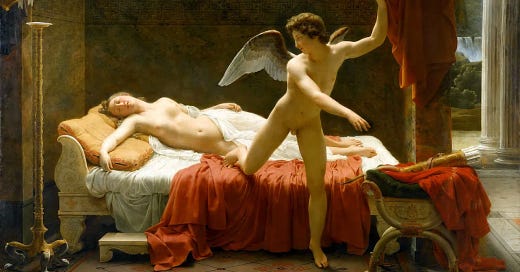



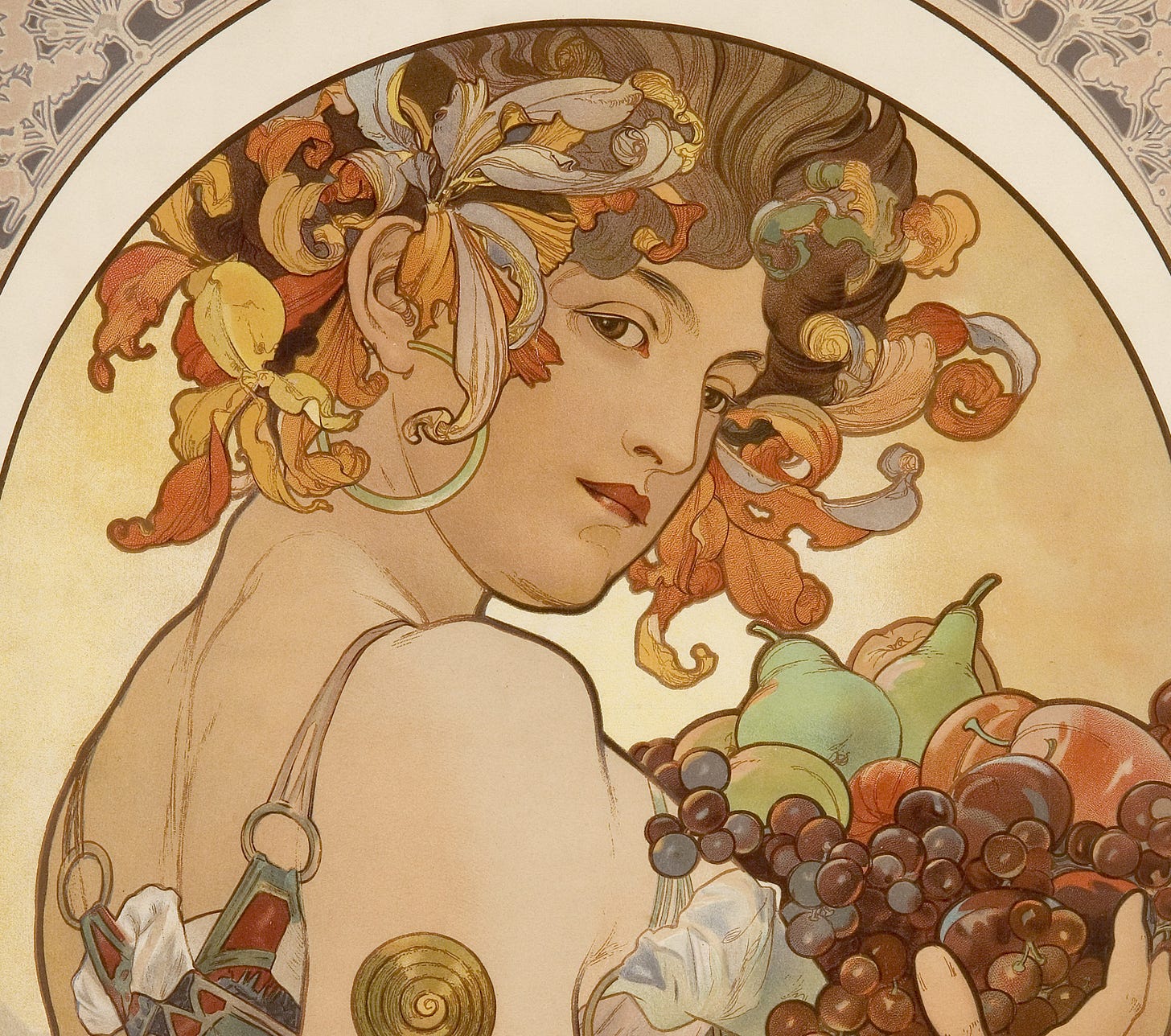
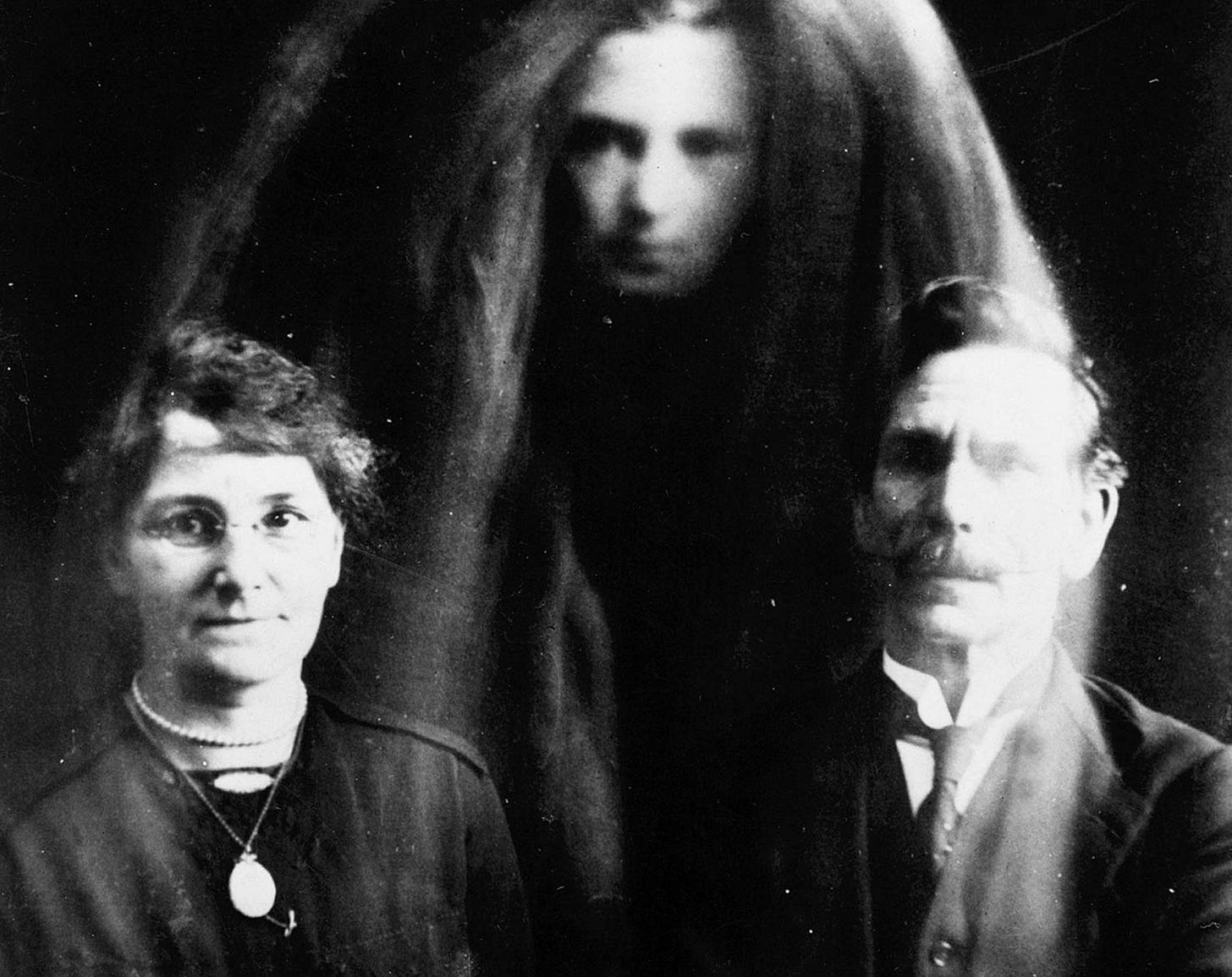
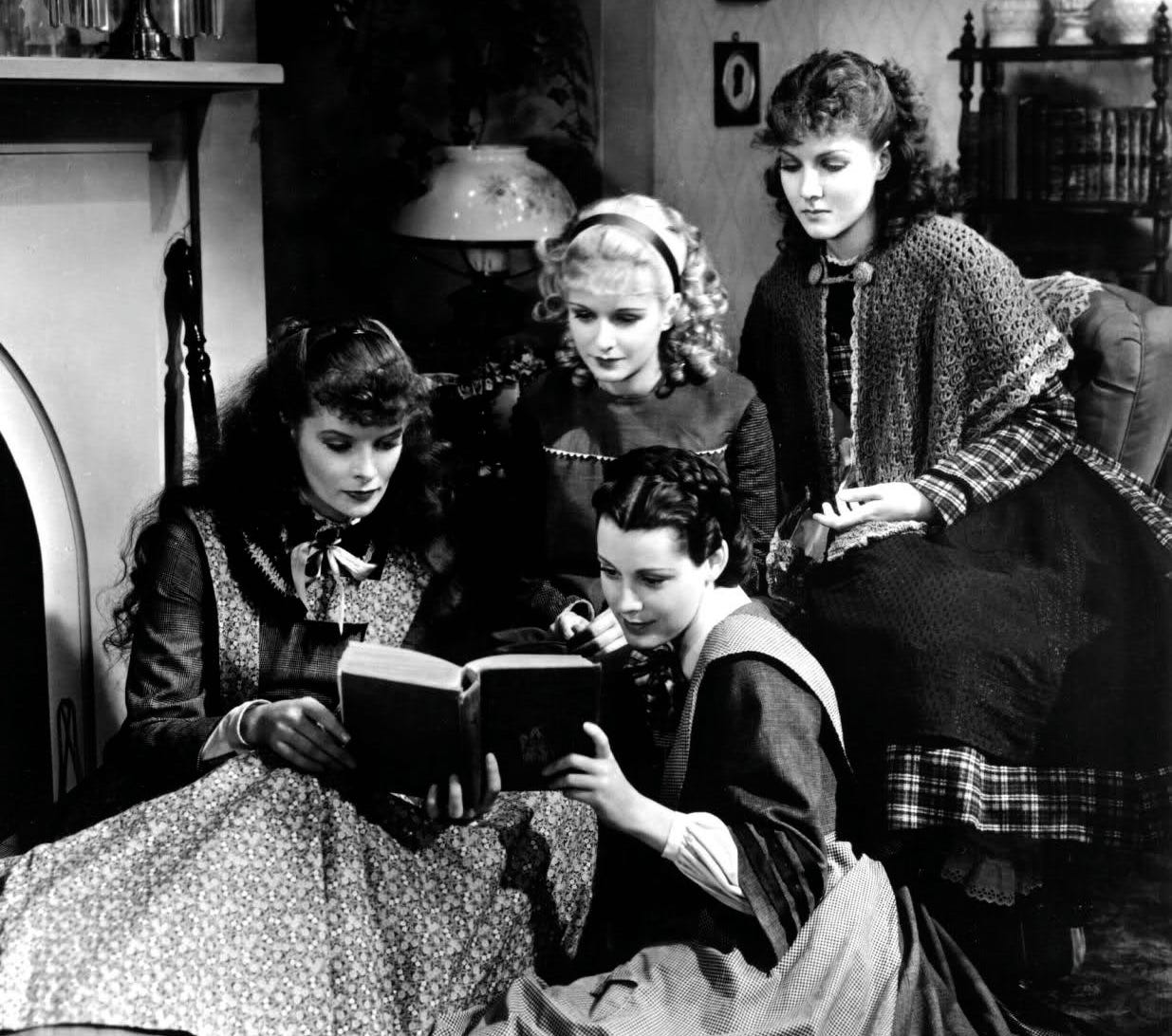

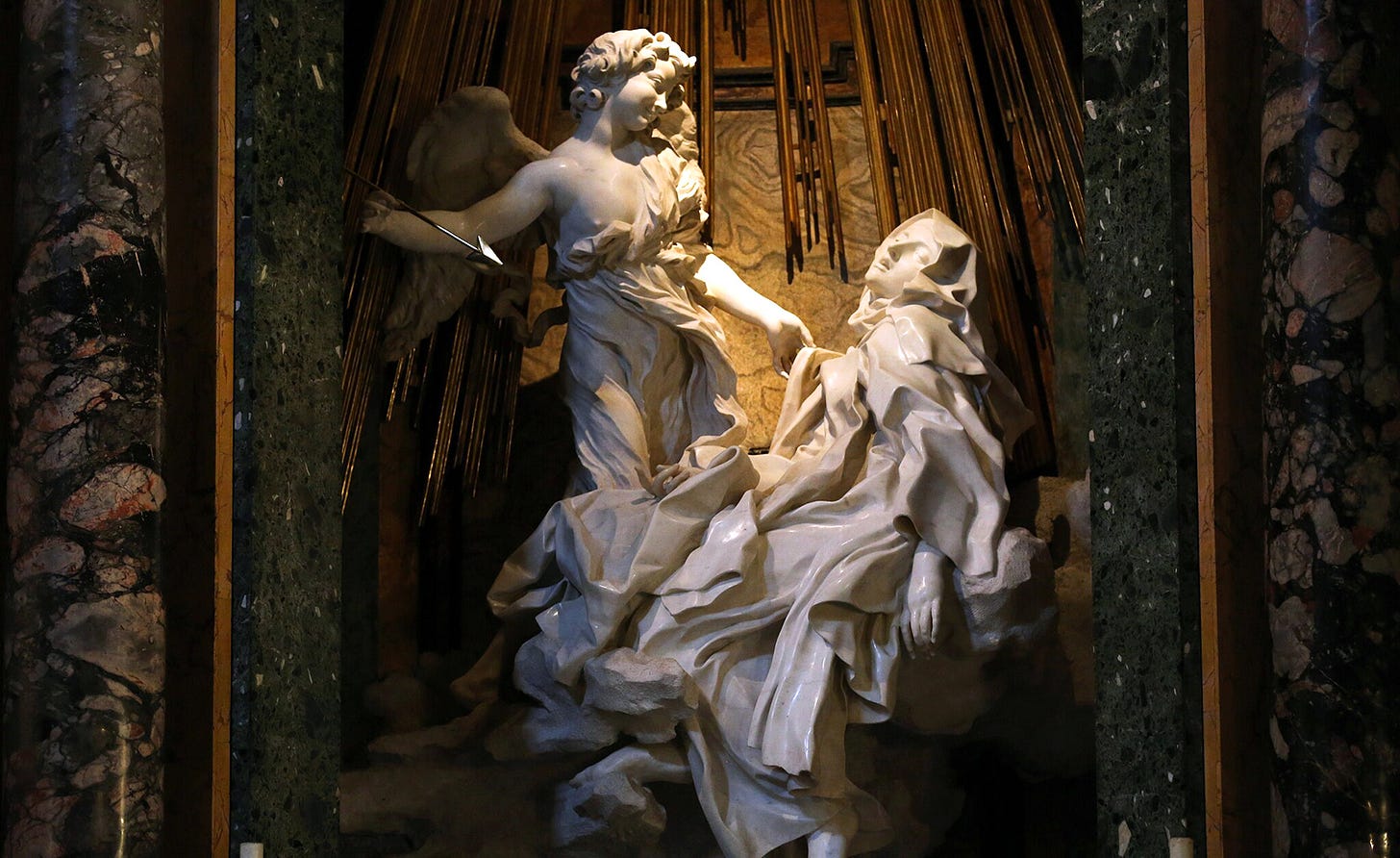
Concetta just might end up like Miss Havisham in Great Expectations, just not in a wedding dress.
As Tancredi and Angelica explored the palace, it seemed unreal—just how big was the palace? It felt like they were trapped in some space/time warp where the first door led to infinite doors.
It seems to me that Sedara and Fabrizio are mutually corrupting each other!
This: 'When he [Don Calogero] got to know Don Fabrizio better he found there again the pliability and incapacity for self-defence that were characteristic of his imaginary sheep-noble, but also a strength of attraction different in tone, but similar in intensity, to young Falconeri's; he also found a certain energy with a tendency towards abstraction, a disposition to seek a shape for life from within himself and not in what he could wrest from others.'
A beautiful and sophisticated portrait of Fabrizio. Just fantastic writing.
(I was falling a bit behind in the reading Ellie but I'm trying to catch up! Another great post - thank you!)